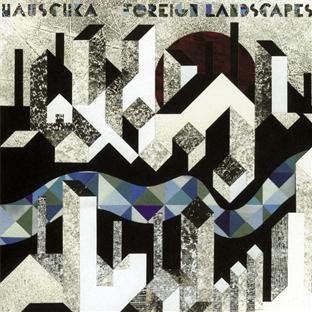
Hauschka
Foreign Landscapes
Release Date: Oct 12, 2010
Genre(s): Electronic, Pop/Rock
Record label: FatCat Records
Music Critic Score
How the Music Critic Score works
Buy Foreign Landscapes from Amazon
Album Review: Foreign Landscapes by Hauschka
Fairly Good, Based on 8 Critics
Based on rating 7.5/10
In Hauschka’s world, beauty is in the tiniest details. The Dusseldorf, Germany-based composer (his real name is Volker Bertelmann) uses orchestration not for sweeping drama, but to color his minimalist tunes. Foreign Landscapes is a travelogue of sorts, with each piece addressing a specific place frozen in time. It’s instrumental music on a human scale, drawing a fine line between classical, pop, and the avant-garde.Since 2005, Hauschka’s main instrument has been the prepared piano.
Based on rating 7/10
Volker Bertelmann’s application of the prepared piano technique to deeply evocative, distinctly European composition, both broadly romantic and steeped in layers of more cosmopolitan minimalism, is hardly anything drastically new. But his style is one of flair, panache and humour, and his live performances as Hauschka brim with character. It could almost be called ‘quirky’, did the word not carry such negative connotations; there’s nothing contrived or artificial about the way Bertelmann writes and performs his music.
Based on rating 3.5/5
Location-themed albums, ones whose ambiance relies on the borrowed allure of foreign places rather than some more personalized theme, seem to come equipped with a kind of musty staleness, redolent of Panama hats and Bermuda shorts. It may be because the heyday of this genre came in the ‘50s, with albums like Enoch Light’s Persuasive Percussion and Martin Denny’s Exotica series, designed to impart an air of worldly culture to space-age bachelor pads. Records like this digested the sounds of far-off countries into cute, reductively packaged snippets.
Based on rating 5.5/10
Volker Bertelmann, the German pianist/composer who records as Hauschka, likes to keep things small. His instrumental sketches rarely exceed the five-minute mark, and they completely eschew "big" dramatic moments. At their best, they function like a series of a wistful, drifty postcards from some middle memory of places and things. This approach served his 2008 album Ferndorf well enough; an homage to his childhood village in Germany, it's charmingly naive and occasionally bittersweet, something you could imagine nicely scoring a sentimental coming-of-age film.
Based on rating 2/5
It’s hard to pull off charm these days. Art that is charming — small landscapes, dog portraits, etc. — often seems not just pleasing or quaint, but also cheap and inconsequential. In fact, most of what goes by the name of “charming” today is a product of consumer industry; it’s a bastard aesthetic designed to gloss over the inherent emptiness of mass-produced culture.
Opinion: Excellent
Fluidity and seamlessness seem to go hand in hand. It’s a great accomplishment for an artist to find a certain flow in their writing that captures the seamless transitions most often found in regular life. For Hauschka’s Volker Bertelmann, music has always been the extension of his voice into a melodic line. And with a musical voice that is always travelling down a linear path, Foreign Landscapes is a spellbinding new journey into the wave of sonic explorations.
Opinion: Very Good
By drawing on his training as a classical pianist and looping in the common thread of simple beauty within sound, Hauschka, the alias of Dusseldorf-based, Volker Bertelmann, creates music that is both high-brow and accessible. Foreign Landscapes is a sonic mind-map that finds him dancing across geographical locations by way of his prepared piano (which, in layman’s terms, refers to when objects are placed inside the guts of the instrument) and input from San Francisco’s 12-piece string and wind Magik*Magik Orchestra. Track titles reference actual places, such as New York’s “Union Square” and “Alexanderplatz” in East Berlin, and Hauschka lays down his own feel and memory of these spaces via layered melody.
Opinion: Fairly Good
He becomes a romanticist Einaudi, a crafter of tense milieu. Daniel Ross 2010 Hauschka, also known as Volker Bertelmann, is generally spoken of in the same breath as a select band of contemporaries. Usually amongst them are Jóhann Jóhannsson, Peter Broderick and Owen Pallett, all of them musical auteurs of a sort. The default reaction for many when their work is considered, Hauschka’s included, is one of automatic reverence because they’re highbrow artists working in a pop medium, or at least a more emotionally direct one.
'Foreign Landscapes'
is available now

